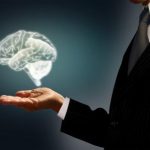
This article revisits the topic with one particular technique (routine) and the documented benefits that are very relevant to the world of business: stress reduction and decision-making. What follows is a direct illustration of our objective with these blogs – namely sharing the information garnered in neuroscience that is directly relevant to business.

This post is an article sidebar to "Can Your Vagus Nerve Stimulate Your Business Success?" Unrelated to business (directly) but this is not to be missed information. A mode of action analysis of how the vagus works suggests it works by reducing inflammation (a modern day culprit impacting performance via a number of health issues).

This post is simply a cross section of information designed to illustrate some of the many documented benefits of mindfulness. As a quick sidebar, I believe it is philosophically inconsistent with mindfulness for it to be used to “enhance performance”.

There is no shortage of lists of how laughter can lead to successful business. I have included three of these in the bibliography, but I will summarize it in a few categories that I feel are most relevant. Let me start with a cautionary note – laughter is undeniably about context – no one wants to come across as the court jester.

Starting with a bit of history – the vagus nerve has appeared in various contexts in earlier articles. Despite these previous articles, a quick summary seems in order, especially since this topic involves so much psychological and physiological context. The vagus nerve is one of 12 cranial nerves – it being the largest. It extends from the brainstem to the abdomen by way of multiple organs, including the heart and lungs.

Just to be clear, my objective in this article is not to do a book review or a historical reenactment of the life and accomplishments of da Vinci but rather to repeat some lessons identified by the author that can be drawn upon in the context of creativity and/or innovation everyday challenges in the world of business.

What could be the practical value (to the world of business) of an overview of the neuroscience of creativity/innovation? If nothing else – I hope to illustrate what a holistic phenomenon this is and encourage initiatives that could enhance cognition, creativity and innovation.

“Humanity’s ability to alter its own brain function might well shape history as powerfully as the development of metallurgy in the Iron Age, mechanization in the Industrial Revolution or genetics in the second half of the twentieth century.”








